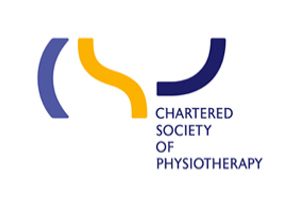
posted 29th May 2024
Hydrotherapy & Aquatic Physiotherapy in London and Essex | Improve Mobility & Strength
WHAT IS AQUATIC PHYSIOTHERAPY?
Aquatic therapy, also known as hydrotherapy, involves exercising in a warm-water pool, typically 32-35.5 degrees Celsius, which is warmer than a typical swimming pool. Guidance is normally provided by a physiotherapist. They will be able to create a treatment plan tailored to your goals. This is different to aqua-aerobics, which can often be quite strenuous, but the same principles of using the water apply.
WHAT ARE THE BENEFITS?
Pain relief and reduction in spasm
Increased flexibility and range of motion
Reduce swelling and increase circulation
Improve strength and endurance
Improve cardiovascular fitness
Aid relaxation
Challenge balance and coordination
Re-education of walking, posture and functional activities not possible on land
WHAT CONDITIONS WOULD BENEFIT?
Exercise in water is used across all ages and abilities. This can range from a flicker of movement in a muscle to training elite athletes. Exercise in water was previously seen as something that was used as a last treatment attempt however, evidence shows that early intervention is helpful in many conditions. It can be used as part of a larger treatment plan which includes other disciplines and land based exercises, it could be the only treatment and could also be used as part of a maintenance plan. Conditions that benefit include but not limited to:
Osteoarthritis
Spondyloarthritis
Post-surgical procedures
Rheumatology conditions such as fibromyalgia and [rheumatoid arthritis=https://www.nhs.uk/conditions/rheumatoid-arthritis/}
Neurological conditions
Lymphoedema
HOW MUCH LIGHTER WILL I BE?
During immersion to the waist, approximately 50% of the body weight is offset. This reduces the load on the knees, ankles and feet. Neck-deep water supports up to 90% of the body weight. The more submerged your body is, the lighter the load is on your joints. This allows you to move more, and exercise more than you can on land. Someone that is completely dependent on land can be independent in the pool, which can be incredibly empowering.
WHERE WILL I HAVE HYDROTHERAPY?
At Estuary Physio, we have a number of hydrotherapy pools around Essex and London that are available for use. If you would prefer to use a local pool or have your own pool, we are happy to risk assess this to see whether this is somewhere we can offer treatment. If you need support with building a pool, we are able to point you in the right direction of where to get support.
IS HYDROTHERAPY FOR ME?
Prior to starting aquatic therapy, a clinicians will check that it is safe to do so. All pool users must be individually screened prior to treatment in the pool, to do this your physiotherapist will ask you questions about your health. There are some conditions that may not be suitable to exercise in a hydrotherapy pool, such as uncontrolled cardiac failure, unstable angina and other unstable medical conditions. It is also worth noting that on each visit, you must be clear of diarrhoea and /or vomiting for 48 hours prior to going in the pool.
HOW CAN I ACCESS THE POOL?
Our team are able to problem solve with you about the logistics of travel from your home to the hydrotherapy pool. Once you are at the pool, you will need to shower with soap and water in easy access showers. There will be a hoist or chair to enter the pool, as well as stairs with 2 rails.
You are able to find information about local swimming pools and how access them here:
However, the best way is often to google pools in the area and then call.
I CAN’T SWIM. IS THE WATER SAFE FOR ME?
You don’t need to be able to swim to take part in aquatic therapy. The pool is usually shallow but can vary in depth so that the therapist can get you exercising at the right level. Please do inform us if you have a fear of water.
WHY DO I FLOAT/SINK IN THE WATER?
Therapists apply the principles of hydrostatics and hydrodynamics to make the most of your session. Some things that may cause you to float, include: Thin bones, caused by conditions such as osteoporosis, increased adipose tissue (fat tissue) and reduced muscle tone. Some things that may cause you to sink, include: sporty individuals with high bone density and increased muscle bulk, high tone, being unable to spread your body out over the water and anxiety.
If you find that your leg floats to the surface in the pool, the therapist might add weights to your ankle.
HOW CAN AQUATIC THERAPY HELP WITH RELAXATION?
The water is a great medium to achieve relaxation in. There are a number of different reasons for this including:
-The heat of the water
-The suppression of the sympathetic nervous system (This controls fight or flight response)
-Feeling of the water on the skin
-Ease of movement within the water
Our therapists aim to make you feel as safe and comfortable as possible. This can be achieved in a number of different ways, including their handling, the use of equipment such as floatation devices and using relaxation techniques such as gliding your body through the water. They may also be able to adapt the lighting and play music, if this helps.
WHAT IF THE POOL IS CLOSED?
There are strict levels of hygiene for hydrotherapy pools, which is why you will find they have more pool closures than regular pools. If your pool is prone to closures, we would recommend you call the pool, every session, prior to leaving home to ensure that the session will be able to go ahead. If you would still like to go ahead with a therapy session, we may be able to provide you a land-based or virtual session instead.
Booking an appointment
If you would like to find out more about Estuary Physios musculoskeletal service, please get in touch with us today and speak with one of our clinicians.
HELPFUL RESOURCES:
Halliwick Association
National Axial Spondyloarthritis Society
Aquatic Therapy Association of Chartered Physiotherapists
Other conditions we treat:
We understand that our clients often have a range of medical conditions. Our therapists have a broad range of backgrounds. For example, someone with sciatica may also find they are having difficulty with falls. Please find more informations on falls here:
Parkinsons and Multiple Sclerosis
Neuro Rehab
Dementia
Medical Review
The information on this page has been reviewed for accuracy by Barry Ford BSc MCSP, Physiotherapist





